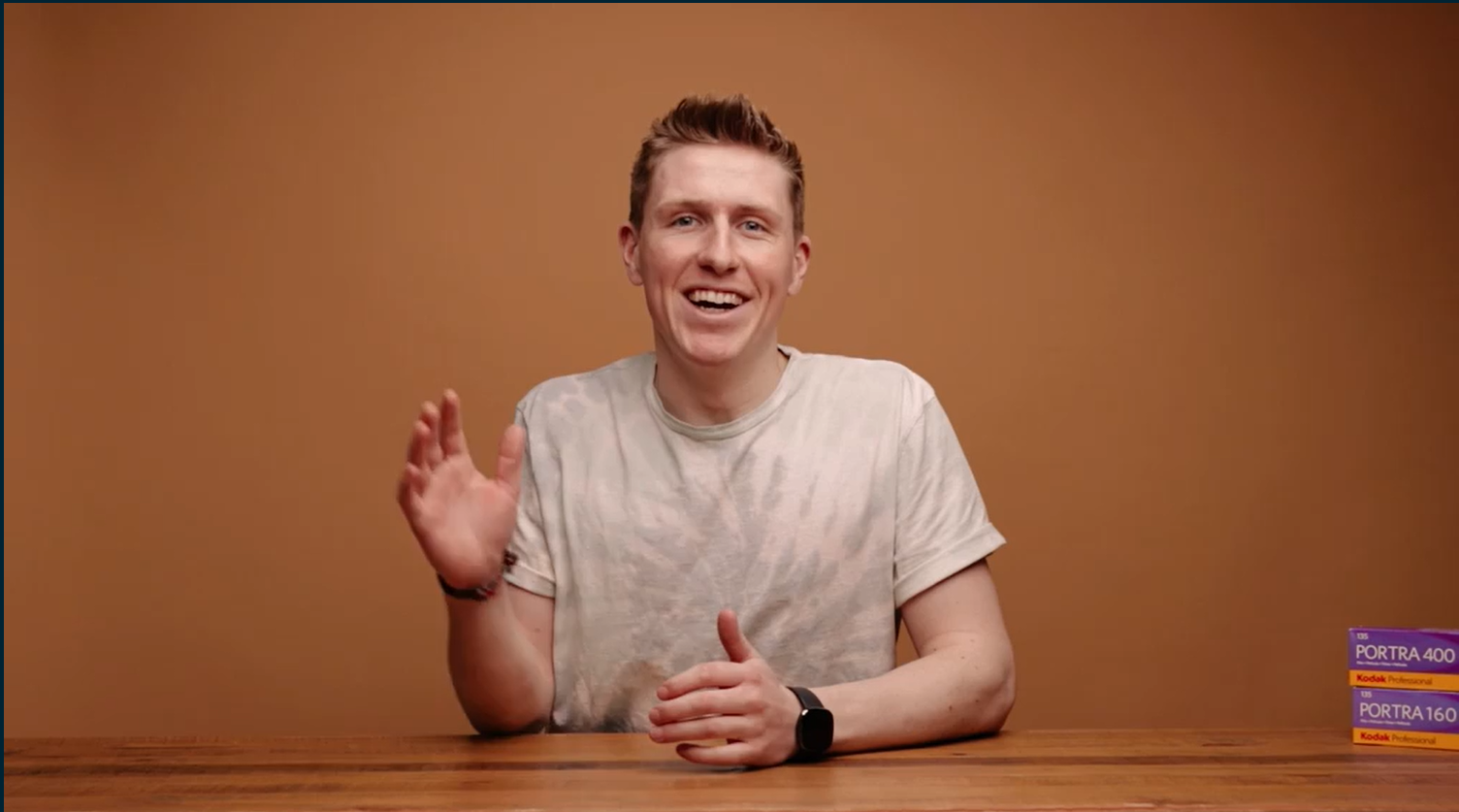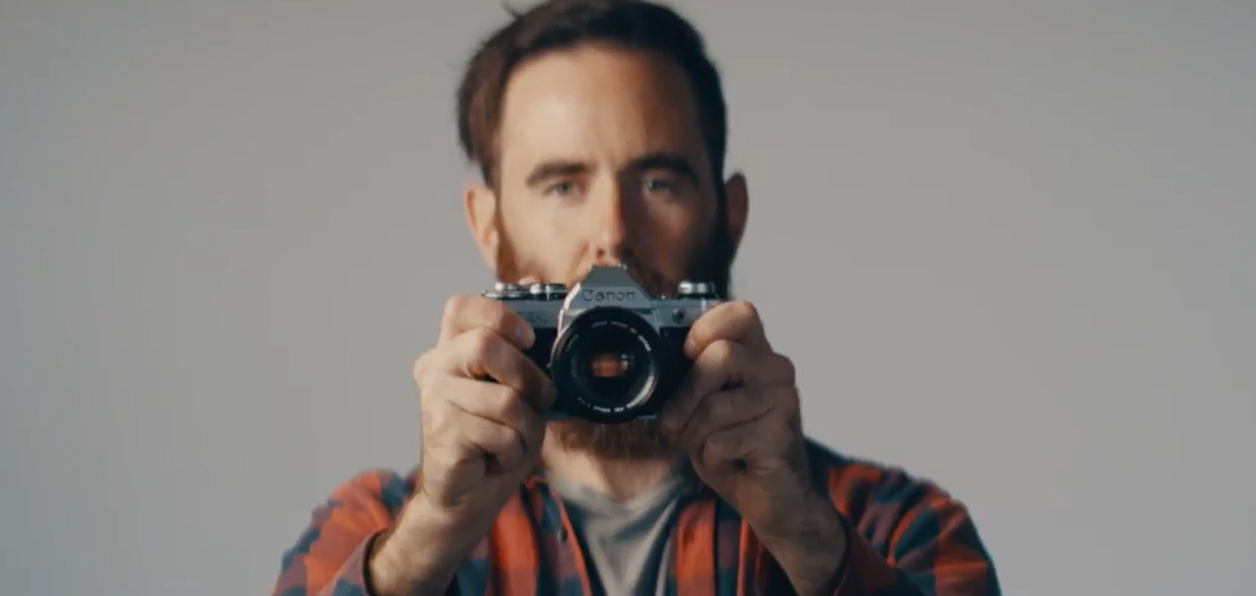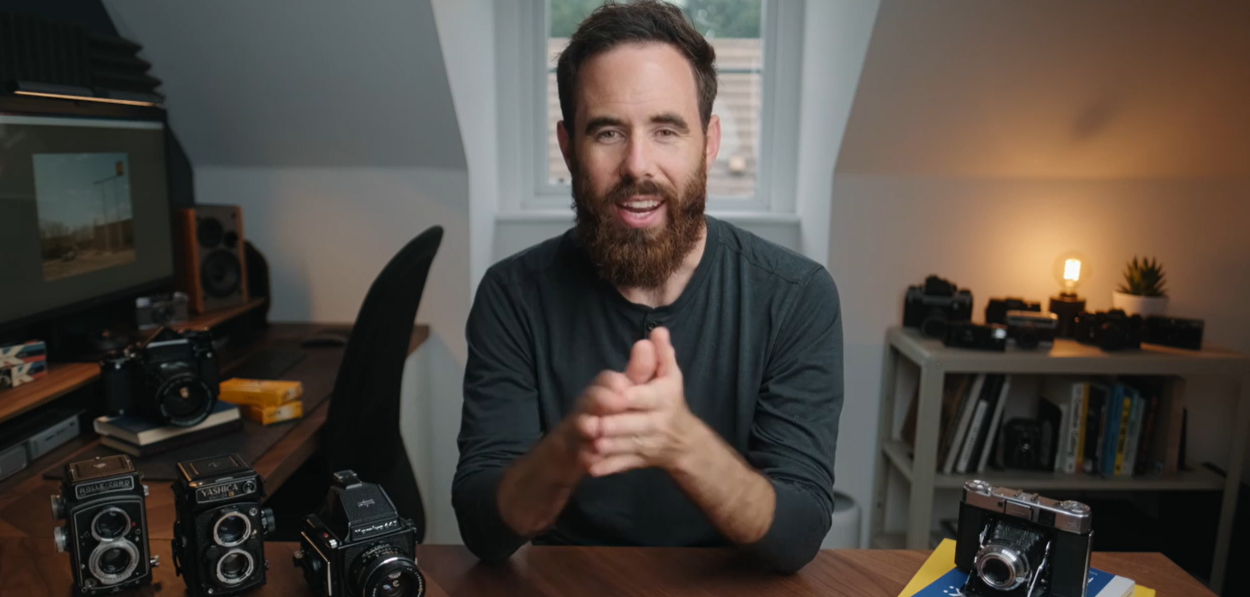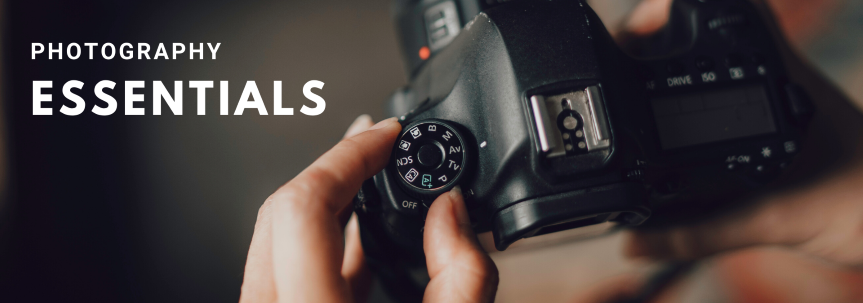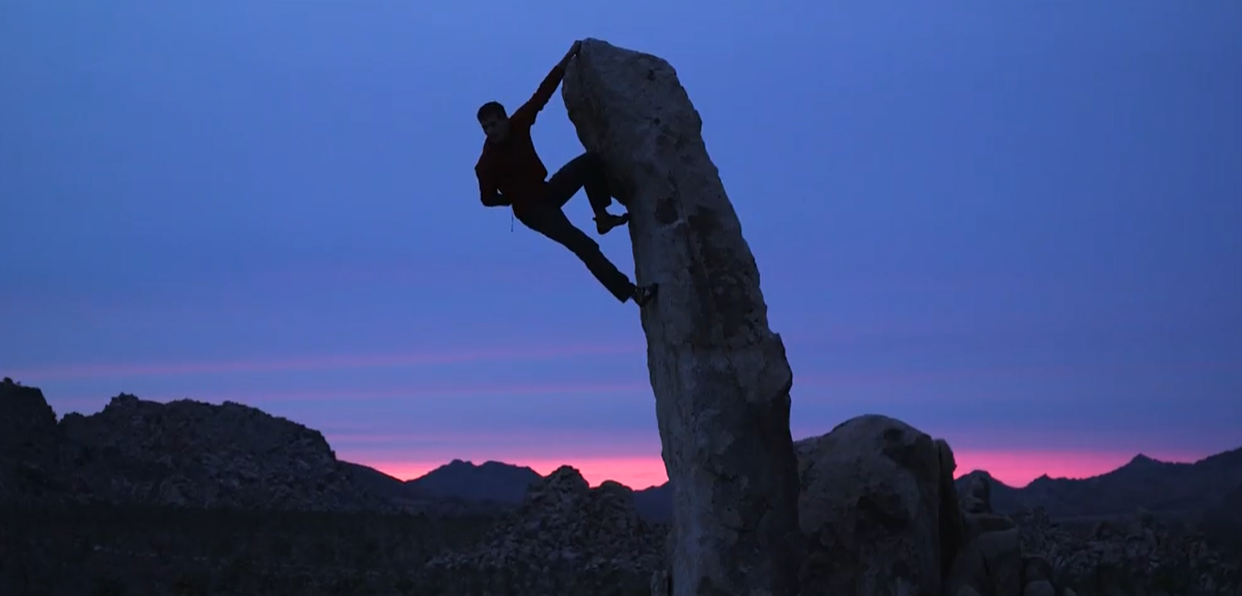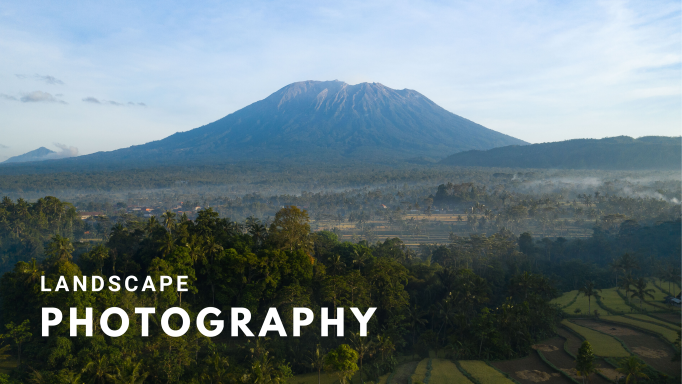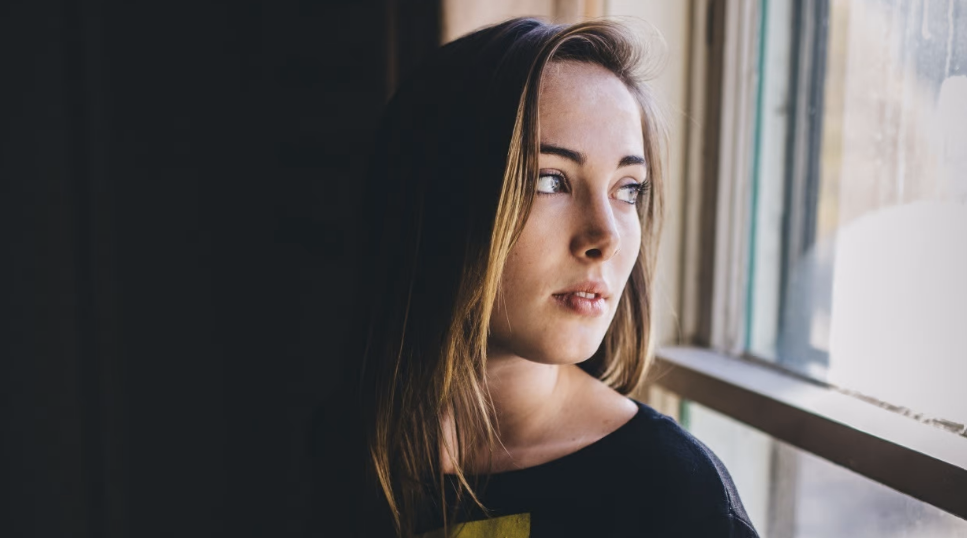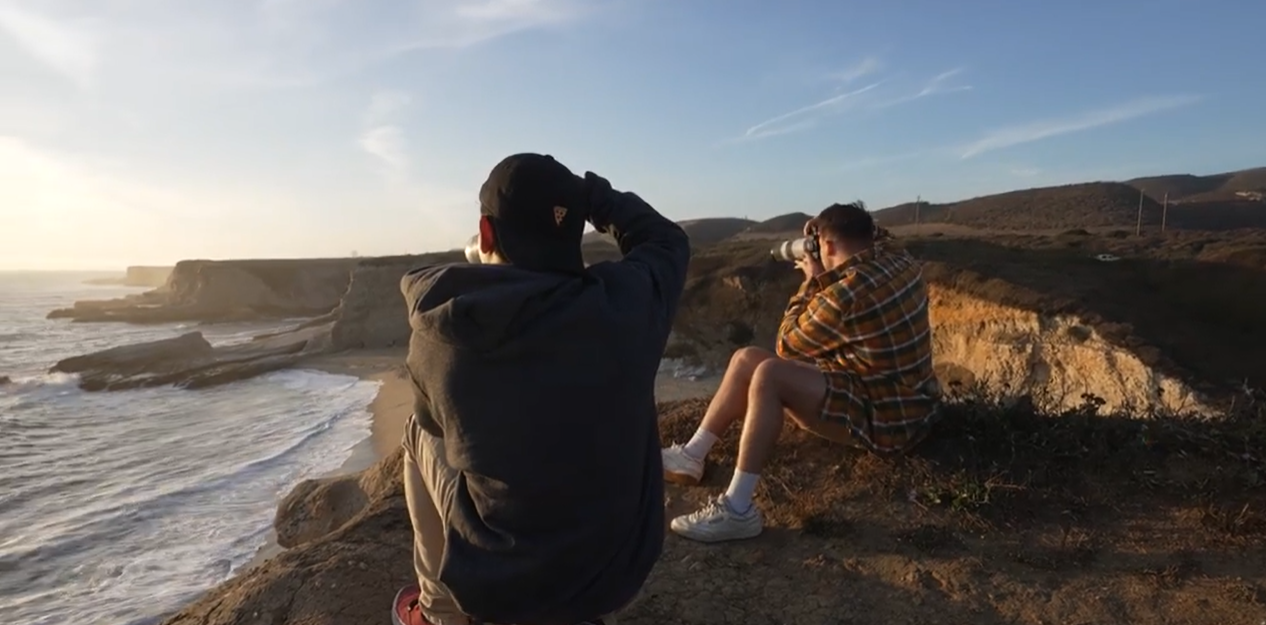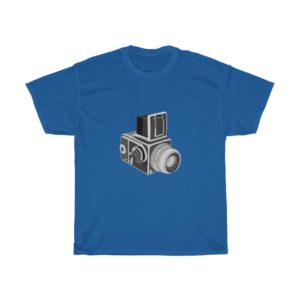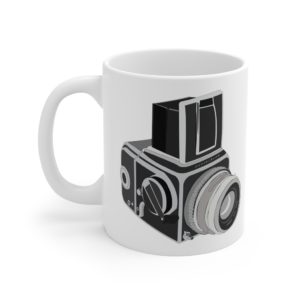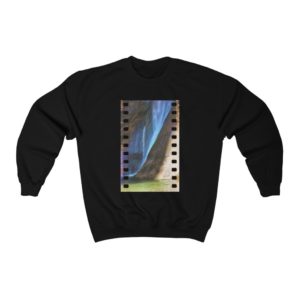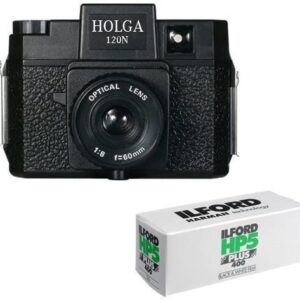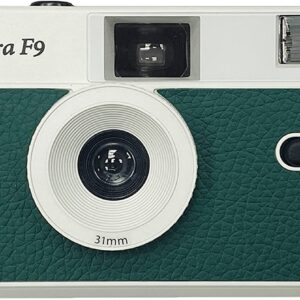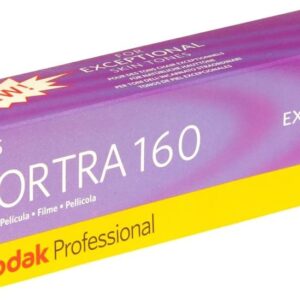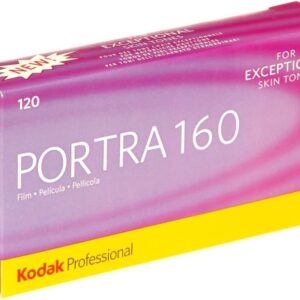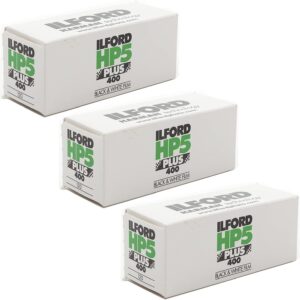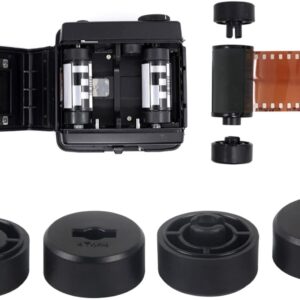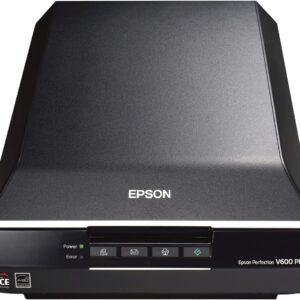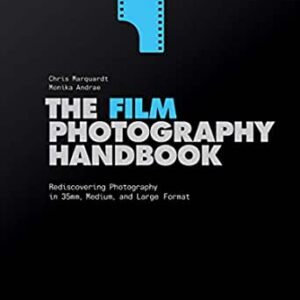Free & Paid
Film Photography Classes Online & Local
Want to Learn All About Using Analog Cameras And Film To Create Amazing Photos? Check Out These Classes To Get Started
NEW: Ultimate Guide to Getting Started in 35mm Film
Film Photography: Shoot Your First Roll Of 35mm Film
Film Photography: Shoot Your First Roll Of Medium Format Film
Photography Essentials: 10 Exercises for Better Photos
Outdoor Photography: Shooting at Sunset, Sunrise, and Night
Landscape Photography: Capture the Beauty of Planet Earth
Fundamentals of Portrait Photography
Travel Photography: How To Document & Share Your Next Trip
NEW: Ultimate Guide to Getting Started in 35mm Film
Discover the Ultimate Beginner’s Guide to Shooting 35mm Film!
This isn’t your typical photography course. It’s a comprehensive dive into the world of film photography, tailored specifically for beginners.
Learn the nuances between film and digital, and how shooting on film changes your approach. Perfect for newcomers, with valuable insights even for those who’ve dabbled in film before.
No prior experience required—I’ll guide you through everything, from technical terms to fundamental concepts.
This course is for everyone keen on 35mm film photography. Covering essential topics like types of cameras and film, loading, shooting, troubleshooting, and maximizing results. Plus, demystifying film development and scanning.
Join me on this exciting journey to capture stunning 35mm film photos! AND… You get a free month of Skillshare from Adrian Hallberg!
Film Photography: Shoot Your First Roll Of 35mm Film - By Kyle McDougall
Experience the Timeless Art of 35mm Film Photography!
In a digital-dominated world, film photography offers an irreplaceable charm and learning experience. Regardless of your skill level, embracing film will elevate your photography journey.
This course demystifies the process, making shooting on film accessible, forgiving, and cost-effective.
Shoot Your First Roll of 35mm Film!
Embark on a journey to shoot your inaugural roll of 24 exposures, gaining confidence and tangible results along the way.
We’ll cover everything you need, starting with:
- Finding Your Camera: Discover budget-friendly options and reliable recommendations.
- Choosing the Right Film: Navigate the market to find the perfect balance of value and performance.
- Mastering Camera Operation: Learn loading, unloading, and basic operations.
- Perfecting Exposure: Utilize internal and external light metering for stunning results.
- Developing and Scanning: Navigate the process from lab recommendations to scanning techniques.
- Post-processing: Elevate your images with simple yet impactful editing techniques.
Join me in exploring the captivating world of film photography—I can’t wait to witness your journey!
Plus, unlock a special offer: Get one month free on Skillshare through this exclusive link by Adrian Hallberg.
Film Photography: Shoot Your First Roll Of Medium Format Film - By Kyle McDougall
The world of medium format film photography is one that brings with it a lot of unique benefits, from camera options to image quality, and is something that I think every film photographer should at least experiment with once.
But regardless of whether you’ve worked with 35mm film or not, there’s a lot to learn with this larger format, with various frame size options, and a long list of unique camera styles and models to choose from. That’s why I decided to put together this course to quickly and easily introduce you to the world of medium format film photography, and provide you with the necessary knowledge so that you can shoot your first roll of 120 film.
Shoot Your First Roll Of Medium Format Film
We’ll start from scratch, beginning with:
- The Benefits Of Medium Format— including why it gives you more flexibility, better image quality, and unique camera options
- Film & Frame Sizes— including what 120 film is, how it works, the different frame sizes you can shoot, and which one may suit you best
- The Different Camera Styles— including the pros and cons of each, how they differ, and which ones are unique to medium format
- My Recommendations— including camera options for each style, as well as some cheaper versions if you just want to dip your toes in the water
- In-Field Sessions— we’ll jump into the field with the three different camera styles, and shoot a roll of film in each, showing you how to load them, how they operate, and some of their unique traits
- Scanning & Flexibility— including the benefits of scanning medium format at home, and a comparison between different scanner options
*You can find the camera recommendation list and lens focal length chart here: Medium Format Cameras, Focal Length Chart
I look forward to introducing you to the world of medium format film photography, and can’t wait to see your results!
Photography Essentials: 10 Exercises for Better Photos - By Sean Dalton
Feeling overwhelmed by all the photography information online? Sean’s got you covered.
In this activity based class Sean guides you through 10 essential photography exercises that will help you develop a strong foundation for capturing beautiful photos. You will learn all the most fundamental lessons of photography, as well as countless tips and tricks that will help you establish yourself as a photographer.
Here are some of the things you will learn:
- How to capture unique compositions that stand out
- How to understand light like a veteran photographer
- How to find complementary colors in nature
- How to master aperture and shutter speed
- How to plan and execute a photoshoot from start to finish
- How to find your unique photography style
- Plus countless other tips that will propel your photography skills even further.
This course was designed for:
- Beginner photographers with little to no experience who want to improve their photography skills
- Intermediate photographers who want a deeper understanding of foundational photography concepts
- Anyone who wants to improve their general knowledge of photography in order to capture beautiful images
Outdoor Photography: Shooting at Sunset, Sunrise, and Night - By Chris Burkard
About This Class
Go on-location with photographer and adventurer Chris Burkard (chrisburkard) as he explores the wilderness and discovers great photos along the way. Chris shows how the best shots occur when you’re aren’t looking for them, while also providing the know-how and tips to make sure you’re ready to capture the moment when it arises. Lessons include working with lighting at different times of day, shooting long exposures, and incorporating subjects into a landscape shot. Perfect for pros and enthusiasts alike, this class will help you take your shots to the next level.
What You’ll Learn
- Introduction. Explore Joshua Tree National Park with Chris Burkard as he reveals his passion for “quick, dirty” photography. Chris’s best landscape photography tips revolve around teaching you to be a flexible photographer who can adapt to your natural surroundings.
- Shooting into the sun. To learn a new skill, you have to be willing to make mistakes. In this lesson, Chris will emphasize the importance of mistake-making by encouraging you to photograph during sunrise, sunset, and nighttime using all the wrong techniques.
- Finding your inspiration. For Chris, a passion for art combined with a love for the outdoors inspired him to try outdoor photography, a medium that lets him become “part of the action” when it comes to exploring nature’s beauty. Listen closely, as he speaks on his inspirations, from architecture to the processes of other photographers.
- Equipment. As Chris takes you on a tour of his photography equipment, you’ll learn the best times to use a Sony A7 vs. a Sony A6000 and become well versed in the filters to use in landscape photography. If you’re not yet ready to invest in a new camera, this lesson will also demonstrate how to make the best of your iPhone camera.
- Sunset. You can never plan for epic moments. Here, you’ll learn how to come prepared to shoot epic sunsets in five-minute windows.
- Night. Long exposures are great for capturing stars in the night sky. You’ll see what a 45-minute exposure can look like and learn what to avoid when leaving your camera running (spoiler: You get to explore the different forms of intrusive light).
- Sunrise. Capturing sunrises doesn’t have to mean just taking pictures of the sun rising. Chris will show you how to use subjects and objects to turn a simple sunrise photo into a narrative.
- Sunset II. You’ll witness the importance of surveying an area before choosing where to take your best shots and how to best capture humans in nature from afar. Chris will explain the advantages of coming to a location with one idea in mind and leaving with something entirely different.
- Night II. Now that it’s getting dark, you’ll explore ISO photography and learn about specialty lenses for low light. You’ll also discover the best fake and natural light sources to use during long exposure nighttime shots. So, as Chris instructs, “Set up the camera, let it run, and go to bed.”
- Sunrise II. Chris will show you how high vantage points can help reveal depth and scale in sunrise photos. You’ll see how a Graduated Neutral Density Filter and a polarizer can improve early morning shots.
- Editing daytime photographs. You’ll learn basic photo editing tools through watching Chris play with saturation, vibrance, shadows, and highlights.
- Editing nighttime photographs. You’ll learn how to make sure nighttime photographs stay true to real life scenes. Chris will teach you how to do this by honing in on a single object from your photograph.
- Final thoughts. Parting tips from this lesson include focusing on framing, using clean color palettes, and coming up with a consistent editing style.
Landscape Photography: Capture the Beauty of Planet Earth - By Sean Dalton
About This Class
Love taking photos outside? Join travel photographer Sean Dalton in Bali, Indonesia where he shows you how to capture beautiful photos of the world around you. In this 120 minute course, Sean takes you to some of Bali’s most beautiful locations where he covers all the most essential information on landscape photography.
In this course you will learn:
- How to find beautiful locations to capture landscape photos
- The best gear for landscape photography
- How to compose landscape photos
- How to choose the best camera settings in any scenario
- Tips for shooting at sunrise, sunset, and blue hour
- How to edit your landscape photos following a simple editing workflow
…Plus plenty of other tips and tricks that will help you capture beautiful landscape photos.
This course is for:
- Anyone that enjoys the outdoors and wants to learn how to better capture its beauty more effectively
- Anyone that has a sense of adventure and wants to experience more of our beautiful planet!
Fundamentals of Portrait Photography: Using Natural Light to Create Drama - By Justin Bridges
About This Class
Photograph a subject with irresistible emotion. This 90-minute class from fashion and portrait photographer Justin Bridges goes on-location to reveal how to use light to create a stunning dramatic portrait.
Whether you use a DSLR or iPhone, you’ll learn how to prep your location, subject, and settings so that you can fully develop skills in composition, exposure, and styling. To make your portraits truly incredible, Justin also shares his favorite tricks for editing in Lightroom.
Throughout the class, Justin offers alternatives to every technique, making the class perfect for all levels for experience and equipment. This is a class for pros, enthusiasts, and everyone curious about how an incredible portrait comes to life.
______________
What You’ll Learn
- Introduction. Fashion photographer Justin Bridges will explain how photographic portraiture can tell stories, and give you skills you can use in a variety of social realms. Justin’s is one of the best online photography courses you’ll find for beginning portrait photographers because he breaks down seemingly complex photographic terminology into simple concepts.
- Location and subject. You’ll get a basic sense of how to choose angles that flatter your portrait models. Justin will tell you how to find the right model to shoot and give suggestions on establishing a rapport with your subject.
- Equipment. Justin will take you on a tour of his photography equipment, starting with his cameras and lenses and moving on to explain the uses of light meters, neutral density filters, and gaffer’s tape. You’ll see why Justin brings his laptop and hard drive with him on shoots, and you’ll learn the advantages of using a DSLR camera over a point-and-shoot.
- Mood and light. By working with light and the model’s expression, you’ll learn how to convey feeling and personality, qualities that appear in all the best portrait photography. You’ll also see how Justin captures high contrast images, an important skill when it comes to capturing a black and white portrait, and learn how to use a light meter to set up your shots.
- Shutter speed and test shots. Now you’ll start your shoot in earnest by directing your model and adjusting your shutter speed, aperture, and ISO. You’ll learn how to make certain elements of your photograph blurry while ensuring others stay in sharp focus. Lastly, you’ll learn how using color cards in your test shots can help later during the editing process.
- Exposure and brick shoot. Justin will highlight the differences between underexposed, overexposed, and perfectly exposed photographs by taking photographs that fit each of these categories. You’ll discover how to capture detail while maintaining maximum contrast and how to balance highlights, midtones, and shadows. Lastly, Justin will show you how to use the auto exposure bracketing setting in his DSLR camera.
- Mirror shoot. Here you’ll learn how to strategically shoot your subject in a room filled with clutter. To avoid certain background elements from sneaking into your photo, you’ll experiment with vertical vs. horizontal shots. You’ll also face challenges like shooting in front of a mirror, and get a closer look at how to direct a portrait model.
- Backlit shoot. You’ll learn how to shoot silhouette style photographs by backlighting your subject, and discover why it’s important not to mix artificial and natural light.
- Cropping (editing). You’ll learn to decide when to scrap a photograph and when to keep it. Justin will teach you the meaning of leading space and negative space and offer some techniques on how to create compositions that spark curiosity in your viewers. He’ll then go over the all-important rule of thirds.
- Lightroom (editing). In bringing your photograph to life, you’ll need to know some quick fixes in Lightroom. Justin will teach you some, like how to paint clarity into specific parts of your photograph.
- Dramatic effects (editing). You’ll see exactly what makes a photo dramatic, starting with contrast adjustment and ending with noise removal.
Travel Photography: How to Document & Share Your Next Trip - By Sean Dalton
About This Class
Have plans to travel? Join travel photographer Sean Dalton in Venice, Italy as he breaks down how to best document your next trip.
In this course Sean walks you through his approach for documenting his trips abroad using a combination of photo, video, and text. You will learn the best way to approach documenting your trip, as well as how to save the memories you capture for easy access in the future.
You will learn:
- How to balance taking photos and living in the moment
- The best travel cameras (including smartphones)
- How to tell stories through your images
- How to upload, sort, and edit your photos
- How to keep a detailed travel journal
- How to best share your travel photos online
While this course is focused on photography, documentation methods such as video and text are also discussed. At the end of this course you will have a better understanding of how to document your trip in a way that best suits you.
Who is this course for?
This course is for anyone who wants to better document their travels, and is accessible to student of all skill-levels.
Do I need any special gear for this course?
No professional camera gear is required to take this course. In fact, a smartphone is more than enough! We will discuss several options for cameras and how to choose the best one for you.
Learn All About Photography Skills And Film From Masters Of The Trade On Skillshare
Do you have a passion for photography and a desire to learn more about the art of film photography? It’s an exciting journey that will give you insight into how camera technology has evolved over time and help you create captivating photographs. Whether you are just beginning your adventure in film photography or hoping to refine your skills, attending one of these classes can provide the knowledge and inspiration needed to take beautiful pictures. Read on to find out more about finding great film photography classes near you!
Getting Started Learning About Film Photography With Online Courses
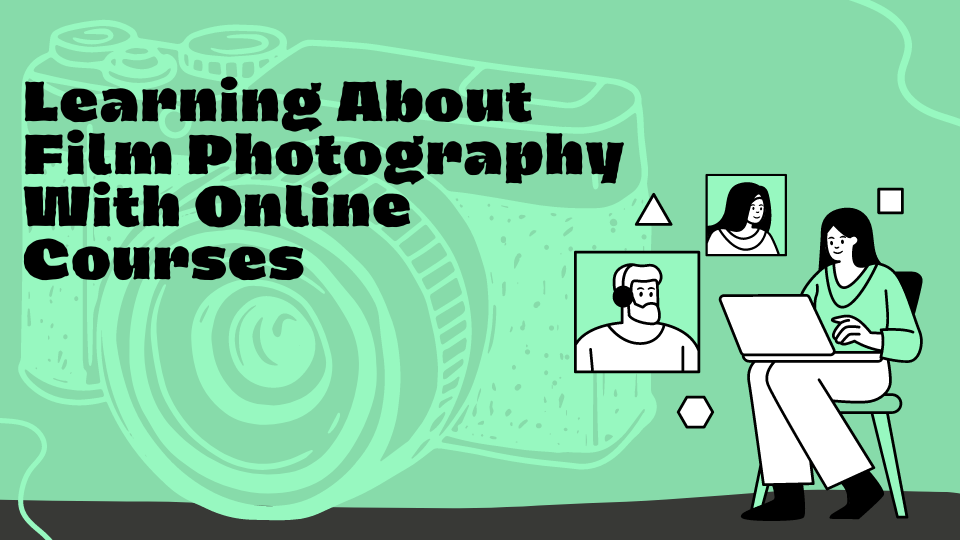
Find out more information about the Film Photography Courses here.
When you first start off with a camera in your hand, things may appear tough, and we will understand this. We are also aware that you might be interested in turning your passion for snapping a million images into a legitimate business of some kind. But before we can even begin to think about business, we have to first become proficient in the principles of this field as they pertain to the real world.
It will take some time and effort for you to become skilled in the art of film photography. However, after you’ve accomplished this goal, you’ll find that it motivates you to create even more. It’s okay if you’re just starting out in this creative profession and don’t know everything there is to know about it. No one is born with a perfect understanding of everything, not even the people who are supposed to be your teachers. The knowledgeable and skilled film photographers who will be instructing us have spent a significant amount of time and effort honing their craft over the course of their careers.
You may be able to learn film photography at a traditional college or in-person institution; however, the instructors there will not be people who have perfected their skill through repeated practice and even created a strong professional web presence for themselves across the world. In this day and age of digital technology, the people who teach it for our company are the filmmakers who have actually achieved success in the real world in the field of cinematography. As a consequence of this, you are learning from the experts themselves!
Why should I enroll in a film photography course that’s offered online?
The process of learning film photography in a traditional classroom setting is very different from the process of learning it online. You should consider taking a film photography course on an online platform rather than attending a conventional in-person classroom session for a number of different reasons. The very first and most important advantage is that you can study whenever and wherever you like. You will be able to learn composition, lighting, and all of the other primary skills you need in your own time and from any location in the globe if you enroll in a digital course.
The second most significant advantage of any online film photography education is the availability of various sites that provide free online photography classes using film. In addition, we give away one part of the majority of the film photography courses completely free of charge. Before you make the decision to buy the course, you may use this to get a better idea of whether or not it will meet your needs.
In addition to this, for the rest of your life, you will have unfettered access to all of our online courses. You have unrestricted access to the films and can watch them as many times as you like, giving you the opportunity to review any information that you might have forgotten. Not only that, but with online film photography programs, you have access to a diverse selection of different classes to pick from. Others will go deeper into manual mode settings such as aperture, ISO, shutter speed, and other exposure options. Some will cover the fundamentals of camera settings or lenses, while others will focus on more advanced topics.
To put the cherry on top, you can choose a certain subject area that you want to become an expert in and then enroll in a class for that subject. If you are interested in learning more about documentary film photography, you can do so by enrolling in a class on the subject. If you are interested in learning more about landscape film photography, there is a course that you may take. You can also learn how to develop with brands and make a living doing so by taking one of our courses in this subject area.
How can we possibly learn a lot by taking classes in film photography?
All of the film photography lessons that are offered online will use a distinct teaching methodology from the more conventional ones. You will be responsible for establishing your own schedule and devoting sufficient time to the learning component of the course if you choose to take it online. Stop putting things off and start working through the material for the class as soon as possible; this is the first and most fundamental stage.
As soon as you begin watching the lectures, you will need to immediately put what you have learned into practice in your everyday life. Practice is absolutely necessary for putting into effect anything you learn in a class. If you watch the entirety of the course but don’t put any of what you learned into practice, you may find that you need to revisit the material in order to recall certain details.
You won’t be able to become an expert in film photography if you don’t put in the time to practice it. Whether you are studying the fundamentals of film photography or shooting for a company, you will need to put everything you learn into practice in real-world settings. Also, throughout those practice sessions, you will inevitably make mistakes; nonetheless, you will improve as a photographer as a result of the various film shooting skills that you will learn.
Through consistent practice, you will be able to build your own distinctive manner while also mastering more complex techniques. You will not be able to make the transition from being an aspiring artist to an inspiring film director in any other way than by following this advice. You will soon reach the field of the most advanced cinematographers, who will be able to teach others as well if you continue to push your limitations and try new things. This will happen as soon as you keep trying new things and keep pushing your limits.
Can you tell me about the many levels of the online film photography courses that you offer?
We are aware that the ability level of each individual who expresses interest in taking a class will not be the same. Because of this, we make available classes ranging from beginner to advanced levels, so that anybody can get the knowledge they require. Let’s have a look at the various ability levels that are available for these different courses that we provide in our marketplace.
Level 1: Beginner
We are aware that there are instances when it is necessary for you to begin with something as fundamental as being familiar with a new camera body and gaining knowledge about digital cameras. This is exactly what students can expect to learn in their first film photography classes. Everyone who is just starting out in film photography will have the opportunity to take a course designed just for beginners to understand the fundamentals of film cameras and how to shoot film.
Once you have finished the courses at this level, you will have the skills necessary to create stunning videos, documentaries, and movies. No matter if you want to work in documentaries, short films, or experimental films, taking a film photography class for beginners will always be beneficial in helping you master the fundamentals of the industry.
Although there are some individuals who choose to overlook the fundamentals, these fundamentals are what enable you to achieve unique shots. And gaining a deeper understanding of things through research and study will always be beneficial to you in the long run. After you have gained some familiarity with the fundamentals, you will be in a better position to experiment more with hands-on projects, as the fundamentals will always be in the back of your mind.
Level 2: Intermediate
After becoming familiar with the fundamental controls of the camera, you will next be able to cultivate your creative side by taking classes at the intermediate level. You will not only be able to broaden the scope of your artistic expression, but you will also gain a deeper understanding of the practical considerations that go into running a company in this sector.
You will also be able to learn more about the post-processing element of film photography, as well as how to create exceptional results using Adobe Premiere, if you choose to go to this level. The vast majority of beginning filmmakers don’t give post-processing any thought at all. However, this is a significant component that will assist you in producing higher-quality photographs.
In these classes on film photography, you will learn some wonderful techniques for making the most of the available natural light, as well as a variety of approaches to image composition, in order to create the most compelling photograph possible.
Rising to the Third Level
Rising is the term we have given to the most advanced level of the online film photography classes that we are currently able to provide. Courses at this level are designed primarily for aspiring cinematographers who are already familiar with compositional principles and leading lines, in addition to the various camera settings.
Once you’ve mastered all there is to know about the settings and techniques involved in film photography, the next step is to educate yourself on the aesthetics of video. You are able to make a video style that is singular to you and that style will resonate with your identity if you create that style. When it comes to film photography, the ability to click superior photographs is ultimately the result of developing a style that is all your own.
Questions That Are Typically Asked
We are aware that, with the wide variety of options available for instruction in digital film photography, it may be challenging to choose which course to enroll in. In order to clear up any confusion that may arise regarding the training, we have developed a list of some of the questions that are asked the most frequently. Therefore, feel free to go through them to see whether we have an answer to your question somewhere in our database.
If I didn’t have any previous experience with film photography, would I still be able to benefit from taking a class?
You won’t need any prior filmmaking expertise at all because you’ll be able to pick up almost all you need to know. After all, this is the primary objective that we hope to accomplish with the help of our film photography lessons. Everyone who is interested in getting started but hasn’t done so yet will be taught everything that we know. This is another reason why we provide a course that is 24.5 hours long and covers the fundamentals of cinematography, composition, and lighting. Doing so is something that, particularly if you are new to film photography, we strongly recommend that you do.
If I took a course in digital film photography, would I be able to acquire a certificate upon successful completion of the course?
Yes, if you successfully complete the digital film photography course that we offer, we will award you with a completion certificate. Please keep in mind that the classes taught in our establishment are not the same as those taught in schools that award diplomas or certificates. Despite this, it was still valuable because you developed new skills as a result of participating in them. In the event that you require the certificate at any point in time, please get in touch with us at hello@shopmoment.com, and we will issue it on your behalf.
Do you provide distinct film photography classes for the various types of genres that people shoot?
Yes, we do. When you browse through the film photography courses that we provide on our website, you will notice that there are numerous different courses available to you dependent on the kind of photography shoot that you are interested in doing. The Film Photography Workshop, Documentary Photography: Shooting Environmental Portraiture with Vuhlandes, Photographic Storytelling with Joe Greer, Landscape Photography on Film with Corey Wolfenbarger, and many more are among the topics covered in our available classes. Out of the many available choices, it is not difficult to zero in on the one that most interests you to study.
I’m rather savvy when it comes to adjusting the settings on film cameras, but I have a lot to learn about lighting. Do you offer training in that particular topic?
Yes, we do offer a class specifically for that topic. You are welcome to take a look at the workshop titled “The Film Photography Workshop,” which provides novice creatives with four condensed lessons designed to help them progress in their careers. Learn from some of the most well-known and respected contemporary film photographers in a variety of fields and approaches, including light metering, locating and arranging amazing frames, producing emotion, monochromatic styling, and a lot more.
We are fully aware that knowing how to use camera equipment is not always sufficient for filmmaking, since light is also an essential component of the medium. As a consequence of this, we put in a lot of effort to ensure that we cover the majority of the important facets of filmmaking, such as light.
I’m just getting started as a freelancer, but my long-term goal is to work in the film photography industry professionally. What kind of action should I take next?
If you are just getting started as a freelancer, we strongly encourage you to watch this class, which is titled “Your Journey into Film Photography with Willem Verbeeck.” In it, you will learn how to take, develop, and edit film images like a seasoned professional. You will also receive access to pre-recorded question and answer sessions with each of the seven specialists, which will ultimately assist you in becoming a professional film photographer.
Getting your first work as a film photographer is extremely important when you are just beginning your career in the field. After that, you’ll be able to build on it, which is why we suggest beginning with this course as a foundation.
Do any of your courses involve the use of film, and do you provide any online film photography training at no cost?
Yes, virtually all of the classes offered in our store come with a complimentary online class component.
We think it’s important for you to have all of your questions answered about a class before you commit to paying for it. As a consequence of this, we will always give you a portion of the session that is free to try out. Before you commit to purchasing the photography course, you will have the opportunity to test it out and ensure that it meets all of your needs.
What makes your shop the best place to purchase a course from?
Oh, I beg you! We would much prefer inquire as to why you should not get one from our store.
We offer classes taught by some of the most well-known film photographers in the world. These instructors have garnered a stellar standing in their field through years of dedicated service. These artists have perfected their craft in a specific field, and they share their knowledge of this field with participants in the film photography workshops that we provide. You’d benefit tremendously from receiving instruction from the people whose work you’re already familiar with!
Is it worthwhile to take film photography classes online?
OF COURSE! That is not something you should even question. As creators, we are aware that expanding our knowledge of themes such as composition, lighting, tools, and other subjects can improve both the quality of our work and the flow of our creative processes. It is absolutely worth the money to participate in one of our fantastic workshops in order to acquire the new skills that can be obtained from taking online film photography courses. These digital film photography courses, in contrast to typical degree programs, have a low entry barrier, allowing students the opportunity to learn from some of the most knowledgeable experts in the field. Moment The price you pay for the education offered by online film photography courses is ridiculously low.
You are unsure of which Lessons would be most beneficial to meet your requirements.
To shoot film has an inherently romantic appeal; this is true not only because of the wide variety of wonderful analog cameras available but also because of the stunningly beautiful aesthetic of the many types of film as well as the process of shooting film itself. You have no choice but to work within its limitations, which in turn makes photography easier to understand.
NYC Film Photography Classes: Local Options
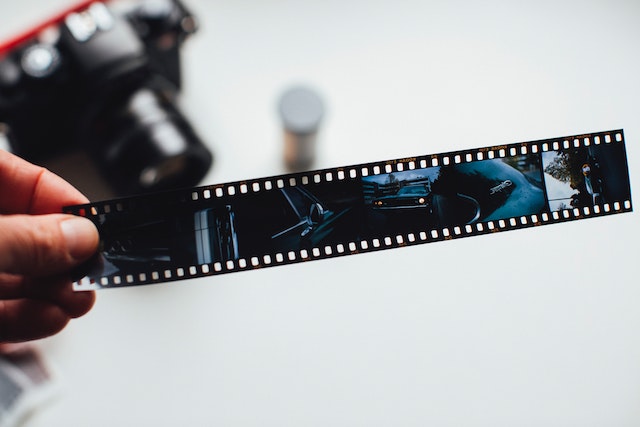
New York City is known for being a vibrant, bustling city, full of world-renowned landmarks, exciting attractions and seemingly endless entertainment. It’s no wonder that so many photographers flock to the city to capture its beauty. For those looking to take their photography skills to the next level, NYC is home to an array of film photography classes that offer something for everyone.
Whether you’re just starting out or want to refine your photography techniques, there’s an NYC film photography class that can help you reach your goals. From darkroom printing courses and studio lighting workshops to digital media seminars and travel photography classes, there’s sure to be something for everyone. Not only do these classes provide hands-on instruction from experienced professionals, but they also offer a unique opportunity to work with other local photographers in a classroom setting.
Types of Classes Offered
For those interested in traditional film photography, there are plenty of courses available around the city that cover everything from the basics of developing film in a darkroom setting to advanced editing techniques and printing methods. Darkroom workshops give photographers the opportunity to learn about different chemicals used in developing photos as well as different types of enlargers and other equipment needed for successful prints. Studio lighting classes focus on learning how to manipulate light in order to create photos with dynamic lighting effects while digital media seminars teach students how to use Photoshop and other image manipulation software programs.
Travel photography classes are also offered in NYC which teach participants how best to capture images while traveling abroad or within the United States. These classes focus on composition techniques as well as tips for choosing camera settings depending on where you’re shooting and what types of photos you want to take. Of course, if you don’t want any hands-on instruction but would still like some guidance when it comes to taking great photographs, there are also several lectures around town where experienced professionals offer advice on composition theory and post-processing techniques.
Benefits of Taking Film Photography Classes in NYC
Taking any type of photo class can be a great way for budding photographers (or even experienced ones) to sharpen their skills and gain new perspectives on their work. But taking one in NYC comes with its own set of unique benefits including access to some of the most iconic landmarks in the world (the Statue of Liberty, Empire State Building etc.) as well as access to professional photographic equipment that may not be available elsewhere. Plus because it’s such a large city with countless streets and neighborhoods all offering up their own individual charm it makes for an ideal place for photographers who want practice shooting various scenes without having having travel too far from home base — reducing both time spent traveling between locations and cost associated with doing so significantly compared with other cities or destinations across the globe .
In addition , working alongside fellow students gives students an opportunity network which may lead future opportunities down the road whether they involve collaborating on projects together or simply providing moral support during particularly challenging times . Finally having knowledgeable instructors on hand means students will have someone right there who can answer any questions they might have throughout the course , making it easier than ever before hone their craft regardless if they’re just starting out or already have years experience behind them .
So how do you start a Film Photography Class In New York City?
Overall , taking film photography classes in NYC is unlike anywhere else due its abundant photographic opportunities combined with first rate equipment plus experienced instructors who can provide invaluable guidance along the way . So if you’re looking take your skill set next level , then it’s definitely worth considering signing up for one these courses – afterall , knowledge truly is power !
Chicago Film Photography Classes: Local Picks
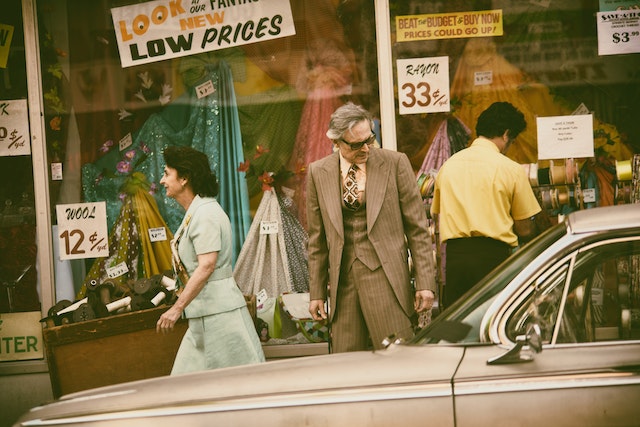
Chicago is a great place for budding photographers to hone their craft and learn more about the art of photography. With its vibrant cityscape, diverse culture, and historic architecture, there is no shortage of inspiration or subject matter for aspiring photographers. There are also plenty of professional film photography classes available in the city that can help you take your work to the next level.
Whether you’re just starting out or looking to brush up on your skills, attending a film photography class in Chicago can be an incredibly rewarding experience. Not only will you gain valuable technical knowledge and skills, but you’ll also have access to unique equipment and resources that may not be available elsewhere. Plus, with all the exciting things to see and do in Chicago while you’re in town, it makes learning even more enjoyable.
When looking for film photography classes in Chicago, it’s important to keep a few things in mind. For starters, look for a program with experienced instructors who are passionate about teaching their craft. They should be knowledgeable about camera settings, lighting techniques, composition principles, digital editing tools, as well as other aspects of traditional darkroom printing processes. Additionally, make sure the program offers hands-on practice opportunities so that students can gain valuable real-world experience during their course of study.
Another way to ensure that you get the most out of any photography class is by finding one with a varied curriculum structure. This means that courses should cover topics ranging from conceptual foundations (e.g., visual storytelling) to technical skills (e.g., manual exposure control). Furthermore, look for programs that offer student support services such as one-on-one mentoring sessions or critiques of students’ work by professionals in the industry. These types of services can help bolster confidence and provide invaluable advice for improving technique and honing creative vision — two essential elements of success for any photographer!
Finally — but perhaps most importantly — make sure that your chosen program stresses the importance of experimentation and encourages students to explore different approaches to capture meaningful images with their own personal style and vision intact. After all, this is what sets each photographer apart from the crowd! Many leading schools like Columbia College Chicago provide workshops focusing on this very thing: helping students become independent thinkers who know how to break away from convention when necessary while still having a strong foundation in classic techniques when needed.
If you’re ready to take your film photography skillset beyond basics such as shutter speed or aperture control — attending an advanced class or workshop at an established institution could prove beneficial! Not only will these classes challenge even accomplished shooters with new concepts never imagined before; they often include field trips where students can practice shooting various scenes around town under experienced guidance — maximizing learning potential over a short period time! Whether your goal is becoming a better street photographer or expanding into landscape work — taking specialized courses could lead to big breakthroughs both creatively and technically within portfolio development goals!
30 Resources for Beginning Film Photographers!
We have advice for you if you’re interested in going analog but aren’t sure where to begin.
We compiled and arranged all of our recommended film photography guides for beginners into one user-friendly manual.
These guides and resources will teach you how to shoot film. They cover everything from selecting a film camera to using various film stocks to rating and metering your film.
There are many lessons and advice to improve your film photography, even if you’ve been shooting film for a long.
Beginner Film Photography Resources on Shoot It With Film
Film Photography Lessons for Novices
We adore the film photography training offered by Skillshare as an online classroom setting to learn how to shoot film. And you may try them out for free!
Listed below are a handful of our top picks for beginners on Skillshare:
- Film Photography: Shoot Your First Roll Of 35mm Film
- Film Photography: The Ins and Outs of Going Analogue
- Aperture, Shutter Speed & ISO: The Basics of (Analog) Photography
- Analog Photography: Beginners Class
Beginner’s Guide to Film Cameras
Every aspiring film photographer begins with the same question: What camera should I buy? The following articles can assist you in selecting your first (or next!) film camera:
You’re going to need some film now that your film camera is ready to use.
You’ll get an overview of both color and black-and-white film stocks from these pages. To help you decide which one(s) to test, they also give a ton of example photographs.
A Guide to Color Film Selection
Which Black and White Ilford Film Is Right For You?
And now, for some of the more well-known film stocks, here are some reviews and comparisons that are more in-depth:
Shooting Kodak Portra 400
How to Use the Fuji Pro 400H Camera
How to Take Photos on Kodak Gold 200
Kodak Ultramax 400 Photography Guide
Film Stock Comparisons in B&W: Fuji Superia X-TRA 400 vs. Kodak Ultramax 400 Ilford HP5, Kodak TMax, and Kodak Tri-X
Samantha Stortecky’s article on Shoot It With Film, “How to Shoot Kodak Portra 400 Film.
Practical Advice for Newcomers
These articles will assist you in finding the answers to a ton of the questions you could have as a novice in film photography. They are brimming with advice that can shorten learning curves and relieve some typical film photography annoyances.
Five Good Reasons to Try Film Photography
10 Tips to Improve Your Film Photography 6 Film Photography
Tips for Novices
Budget-Friendly Ideas for Film Photographers: Shooting Film
Making a Film Format Decision: 35mm vs. 120
The Ultimate Manual for Medium Format Film Photography
5 Film Photography Mistakes to Avoid and Awesome Advice for Traveling with Film, How to Edit Film Scans in Adobe Lightroom
Ten Common Film Problems and Solutions
Five Film Photography Ideas You Should Know
Shoot It With Film’s Kathleen Frank article, “Shooting Film on a Budget: Tips for Film Photographers to Save Money,”
Learning the Trickier Film Photography Techniques
Beginners frequently get lost in a few aspects of film photography. It might be challenging to conceptualize the differences between digital photography and techniques like metering, rating, and pushing your film (and how that all fits together!).
You will no longer be considered a beginner after you have these down.
The Relationship Between Metering and Film Rating: A Guide to Film Photography
Bulb in and bulb out light meters – Comparing various film photography metering techniques on Shoot It With Film (photo credit: @itsamyberge)
Creating a Specific Look for Film Photography
Check out these articles if you’re looking for a certain kind of film photography, such that airy, light feel of film. To help you hone in on a particular aesthetic or genre, they give a ton of tips.
How to Take Film Pictures That Are Light and Airy
Three Pointers for Creating Moody Film Photos
Four Suggestions for Taking Interesting Portraits
4 Quick Tips for Film Landscape Photography
5 Pointers for Film Double Exposures
Film Photography Supplies To Get You Ready To Learn And Practice
Showing 1–12 of 26 results
-

Hasselblad 500 Graphic Sketch T-Shirt (Film Camera T-Shirts)
$30.00 -
Sale!

Photography Retro Waterproof Canvas Backpack
Original price was: $122.93.$80.00Current price is: $80.00. -

Hasselblad 500 Series Mug
$17.00 -

Lower Calf Creek Falls On 35mm Film: Escalante (Pull Over Sweater)
$40.00 -

Holga 120N Medium Format Film Camera with 120 Film Bundle
$44.95 -

kodak-reusable-35mm-film-camera
$47.27 -

KODAK 35mm Professional Portra Color Film (ISO 160) 6031959,Yellow
$81.00 -

Kodak 120 Professional Portra Color Film (ISO 160) 1808674
$59.95 -

3 Rolls Ilford HP5 400 120 Film
$26.99 -

35 mm Film Adapter For Medium Format Camera
$13.99 -

Epson Perfection V600 Colour Flatbed Scanner
$409.00 -

The Film Photography Handbook: Rediscovering Photography in 35mm, Medium, and Large Format
$23.99

